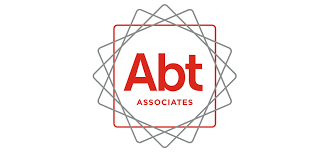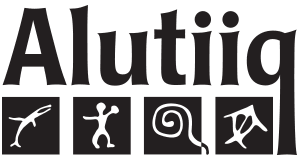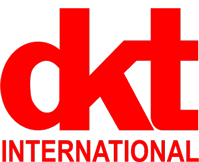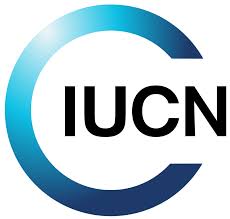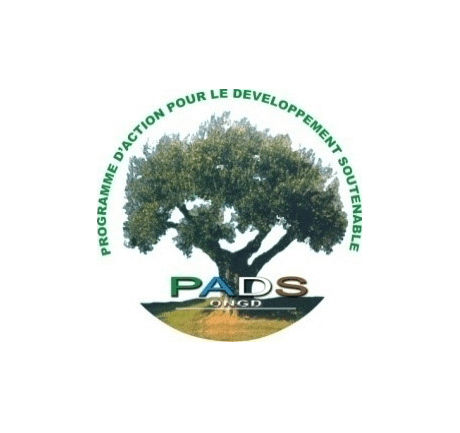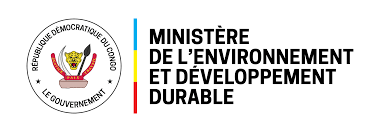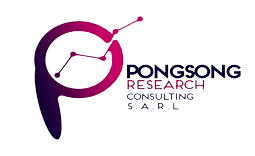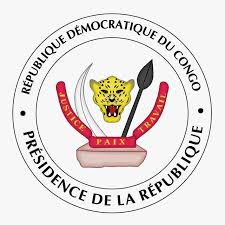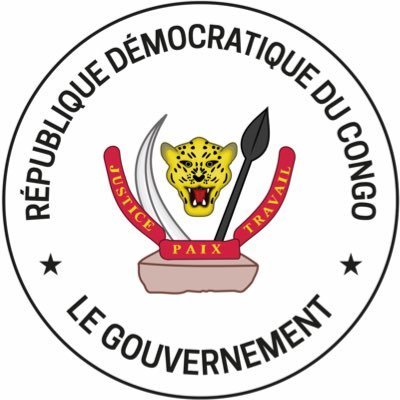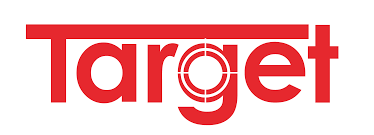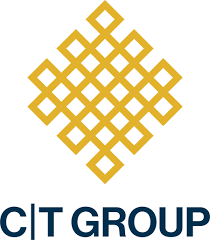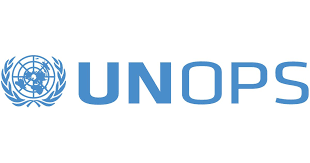A team of professionals.
Think professionals!
We are a team of professionals providing top-notch services to both businesses and individuals.
Why choose us?
At TradExpert Team, we believe that the key to success lies in seamless communication and continuous training. Together, let’s make your projects a success!
Responsive
We know how to buy time! We are responsive ! Once the client accepts, we start to work.
Professionalism
Our team is made up of professionals, specialized in translation and interpretation or similar disciplines. Their experience in the translation industry goes beyond 10 years.
Our references
We provide services to companies, international organizations, travel and tourism agencies. They are all satisfied.
About us
TradExpert Team is a professional translators-interpreters company that offers translation, interpretation, transcription, note-taking, and training in foreign languages, national languages, and computers. We also outsource human resources management.
- TradExpert Team aims to accompany clients in their international development. Over the years, TradExpert Team has worked with leading organizations in the DR Congo.
- As each project is unique, and each translation project requires research, TradExpert Team offers clients a tailor-made solution that meets their technical and budgetary requirements while respecting quality and deadlines.
- In a context where technologies are evolving, and user expectations are increasingly high, TradExpert Team positions itself as an expert with the desire to always offer the best service to customers, taking into account the Congolese context. Good work is an echo. An echo is the best marketing!
Our Work Process
Reception
We receive the documents and define the project requirements.
Analysis
Evaluation of content and linguistic requirements.
Project Organization
Planning of resources and deadlines.
Translation Preparation
Preparation of necessary files and tools.
Translation
Translation by linguistic experts.
Translation Review
Correction and adjustment of terminology.
Proofreading
Final verification of linguistic quality.
Formatting
Adaptation of format and final layout.
Quality Control
Inspection and validation of the work done.
Delivery
Sending the completed project to the client.
Client Feedback
Evaluation and feedback from the client.
Closure
Finalization and archiving of the project.
Consultants
Projects
Training Sessions
Words Translated
Our Services
We offer tailored solutions to meet your communication and training needs.
Document Translation
We help you break language barriers with precise, fluid, and accurate translations that retain the original meaning. Whether it’s legal, technical, commercial, or personal documents, our experts ensure that every word is perfectly adapted to your target audience.
Conference Interpretation
For international conferences, seminars, or business meetings, we provide both simultaneous and consecutive interpretation services. Our interpreters are trained to seamlessly navigate between multiple languages and cultures, ensuring smooth and clear communication with no misunderstandings.
Transcription
We turn your audio and video recordings into written documents quickly and accurately. Whether it's a conference, interview, or business meeting, our transcribers capture every detail, even in the most technical environments.
Training
Our training courses are tailored to help you grow both personally and professionally. From English and French to IT, Secretarial work, Web development, and much more, we offer a wide range of programs to meet your needs.
Website Creation & Digital Services
Our team of developers and designers works with you to create custom, modern, and high-performance websites. From design to launch, we ensure that your website is both functional and aesthetically pleasing, meeting the demands of the digital market.
Consulting
We support your projects with strategic and operational advice. Whether it’s linguistic, digital, or management solutions, our expertise is at your service to help you achieve your goals.
Translation Department
Breaking Language Barriers with Precision!
Our expert translators transform your documents into multiple languages while maintaining meaning, tone, and nuance for flawless communication, no matter the language!

Interpretation Department
Seamless Communication, Worldwide!
Our interpreters ensure flawless communication at conferences, seminars, and international events. Every word counts, and we make sure you’re understood, wherever you are!

Transcription Department
Turning Your Voice into Text, Without Compromise!
Whether it’s a meeting or an interview, we transcribe your recordings with impeccable accuracy and impressive speed, ensuring no detail is missed.

Training Department
Learning is Progress!
Our training programs are designed to boost your skills in English, IT, secretarial work, and web development. Investing in yourself is investing in the future!

Website & Digital Creation Department
Bring Your Ideas to Life Online!
Our team transforms your vision into a high-performing and visually captivating website, ensuring you're at the forefront of the digital world.

Consulting Department
We offer consulting services to support you in international development, multilingual project management, and internal process optimization, providing tailored and effective solutions for your specific needs.

Notre Équipe
Découvrez les experts qui composent TradExpert Team, passionnés par l'excellence et l'innovation dans leurs domaines.

Eloge Mulumba
Sworn Translator & ManagerCertified translator and interpreter, Eloge is an expert in legal, medical, marketing, and political fields. He also serves as a language and IT trainer, contributing to skill development within the community.

Neri Mukadi
Marketing & Operations CoordinatorMarketing and Operations Coordinator, Neri manages communication, translation projects, and administrative tasks. He also oversees business development and optimizes the company’s daily operations.

Mike Luambua
Accounting AssistantAccounting Assistant, Mike handles daily financial operations, monitors invoices, prepares financial reports, and trains colleagues, optimizing accounting processes and supporting the company's projects.

Richard M. Lumanji
Webmaster & ITIT and Development Consultant, Richard optimizes the company's IT systems, develops web solutions, and manages IT projects, providing high-quality technical support along the way.

Rebecca Onyuka
Digital Communication AssistantDigital Communication Assistant, specialized in content creation and online platform management. She optimizes communication strategies to ensure a dynamic and engaging online presence.

Alexis Mukendi
Junior Computer InstructorA Junior Computer Instructor, Alexis teaches Microsoft Office and Adobe Creative Cloud software, providing hands-on training tailored to learners' needs to enhance their professional and creative efficiency.

Emmanuel Matota
Junior English InstructorA dynamic English instructor, specializing in beginner-level teaching. He uses interactive and modern methods to enhance learning while supervising an engaging and friendly English club.
News
Recent News
FAQ - TradExpert Team
Discover answers to frequently asked questions about our services.
What services does TradExpert Team offer?
At TradExpert Team, we offer a wide range of services designed to meet all your linguistic and digital needs. Our expertise includes document translation in various fields such as legal, technical, commercial, scientific, and more. We also specialize in conference interpretation (simultaneous and consecutive) for global events, seminars, and conferences. Additionally, we provide transcription services for audio and video recordings, as well as professional training in fields like English, IT, secretarial skills, and web development. And that's not all—we also create custom websites and offer comprehensive digital services tailored to your needs!
How do I request a quote for your services?
Getting a personalized quote with TradExpert Team is super easy! Simply provide us with details about your project, including the type of service you need, the volume, and the desired timeline. Once we receive your request, we'll prepare a detailed quote based on your specific requirements and send it to you quickly. We make sure each quote is clear, transparent, and fits your budget—no surprises!
What types of documents can you translate?
We can translate all kinds of documents, no matter how complex. Our services cover legal documents (contracts, agreements, notarial acts), technical texts (manuals, product guides, engineering reports), commercial materials (brochures, business contracts, presentations), scientific and medical documents (research studies, clinical reports), as well as personal documents (certificates, CVs, letters of motivation). Whatever your document type, our specialized team of translators ensures high-quality and precise translations, always considering the context and industry-specific terminology.
Which languages do you offer translation in?
TradExpert Team provides top-notch translation services in a wide variety of languages! We cover common languages such as English, French, Spanish, German, Italian, as well as Arabic, Chinese, Dutch, and more. Need a translation in a less common language? Don’t worry! We have a global network of expert translators ready to assist you in virtually any language.
What is conference interpretation?
Conference interpretation is the art of translating spoken language in real-time during events like conferences, seminars, or international meetings. At TradExpert Team, we offer two main types of interpretation: simultaneous interpretation, where the interpreter translates as the speaker speaks, and consecutive interpretation, where the interpreter waits for the speaker to finish before providing the translation. These services are perfect for multilingual events, and we use professional equipment to ensure seamless and high-quality interpretation.
What types of recordings do you transcribe?
We offer transcription services for a variety of audio and video recordings. Whether it's a conference, seminar, interview, or meeting, our transcriptionists are here to provide you with accurate, high-quality transcriptions. We ensure your transcriptions are clear, well-structured, and delivered on time—every time!
Do you offer online training courses?
Yes, we do! TradExpert Team offers online training tailored to the professional needs of our clients. We provide courses in areas like English, IT, secretarial skills, and web development. Our training programs are designed to be flexible, allowing participants to learn at their own pace while benefiting from expert support. We combine theory with practical exercises to ensure that the knowledge gained is both comprehensive and applicable in real-world scenarios.
What is your process for translation projects?
Our translation process is streamlined and designed to deliver top-quality results. It starts with the receipt of your documents, followed by a detailed analysis of your needs and requirements. Next, we organize the project by assigning the right resources for each task. After the preparation phase, a skilled translator works on your content, which is then reviewed by another expert to ensure accuracy. The translation is proofread, formatted according to your specifications, and undergoes a final quality check before being delivered. Once we deliver your project, we also gather client feedback for any revisions, ensuring we meet your expectations before closing the project.
How can I send my documents for translation or transcription?
Sending your documents to TradExpert Team is super easy! You can email them directly to info@tradexpert-team.com or WhatsApp them to +243994333317, +822277317, or +892277317. We accept a wide range of formats (PDF, Word, Excel, etc.), and we guarantee that your files will be handled securely and confidentially.
What payment methods do you accept?
We accept multiple payment methods to make your experience hassle-free, including bank transfers and secure online payments. All payment details will be provided when you place your order. Generally, we request payment before service delivery, unless otherwise agreed upon in writing.
What are your delivery times?
Our delivery times depend on the complexity and volume of the work involved. We are committed to meeting the agreed deadlines and will keep you updated in case of any delays. If unforeseen circumstances arise, we will inform you as quickly as possible and work to minimize any impact on your project.
Do you offer custom services?
Absolutely! At TradExpert Team, we understand that each client has unique needs. That's why we offer custom solutions for all our services, whether it's specialized translations, tailored training programs, or bespoke website designs. We work closely with you to ensure our solutions meet your goals and exceed your expectations.
Where are you located?
TradExpert Team is based in Kinshasa, the capital of the Democratic Republic of the Congo, but we proudly serve clients worldwide! Feel free to reach out to us at: Route de Matadi, Immeuble Espace S (Shadary), Niveau 1, Local 1.12, Kinshasa, Mont-Ngafula, RDC.
How can I contact you?
We’re always here to help! You can reach us by email at info@tradexpert-team.com, by phone at +243994333317, +822277317, or +892277317, or visit our website at www.tradexpert-team.com. Don’t hesitate to reach out with any questions or for assistance with your project—we're excited to work with you!
Our Clients
An overview of our collaborations and projects completed with our valued clients.
Gallery
Discover our captured moments in pictures.
Testimonials
At TradExpert Team, we take pride in our clients' satisfaction. Discover their feedback on the quality of our services and our professionalism.


